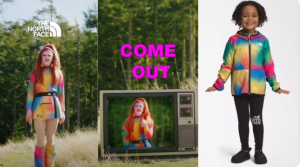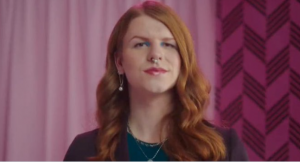‘With great power comes great responsibility’ — this applies to almost everything, but is especially true in the case of popular culture. Interestingly, when one thinks about what popular culture is, movies, web series, daily soaps, music are what one thinks of, while the hundreds of advertisements we come across evade the mind.
Also read: International Women’s Day 2021: 5 women who inspired a generation and beyond
The same advertisements that are packed with so much potential so as to change our consumerism habits, one can only imagine the influence they’ve on our psyche. Time and again, companies have come out with such sexist misogynistic and tone-deaf advertisements that advocate gender stereotypes that women have worked for years to shed.
Who can forget India’s obsession with fairer skin tone craftily tapped by Hindustan Uniliver into selling its fairness cream? Although the product is catered to both genders, while in the case of men, the cream is the key to get the attention of the opposite sex, who would find the man “handsome”, once he has applied that cream, in the case of women, it’s shown to be related to being successful and thus happy.
Also read: 5 inspiring movies, series to watch this Women’s Day
Almost all the ads of kitchen appliances, detergents, cleaning products and energy drinks for children reinstate the same stereotype that household chore is associated with the female gender.
Breaking stereotypes
A recent advertisement by Dove, #StopThe BeautyTest, which attempted to showcase what is expected of woman’s physicality in an arranged marriage setup, was a powerful move. A woman tells her daughter to cover herself up so as to hide her weight, the prospective groom’s mother saying the girl appeared lighter in the photograph, a woman telling the girl’s father that his daughter would need a ladder to talk to her son and a woman telling her prospective sister-in-law to straighten her hair — are scenarios many would associate with. The ad doesn’t preach but simply showcases what is considered normal in our society, which makes it all the more impactful in propagating the message around the unbelievable beauty standards the society sets.
Another ad that attempted to break women-related stereotypes around arranged marriages was that of ethnic clothing brand Biba. It showcases the typical boy’s family goes to see the girl scenario. But in a pleasant twist, the girl’s father questions the boy’s cooking skills and tells his parents that they would visit their home to see if he can cook. This small attempt towards gender equality in marriage was a powerful message.
Advertisements around detergents are generally targeted towards women. But one particular ad of Surf excel tried something different. In it, when a father sees her daughter juggling through work and home, catering to family’s needs while being on an office call, while her husband sits in front of the television while pretending to be working, the father introspects what example he himself set for his daughter. How he never shared household chores with his wife, which set the notion for her daughter of what is expected of her in a household.
To set a positive example, he shares laundry duties with his wife.
Creators, be it, writers, actors, poets, musicians or comedians, withhold an enormous amount of unseen power over society. One can just home they would use the same to break the misogynistic stereotypes and will not reinstate the same.







